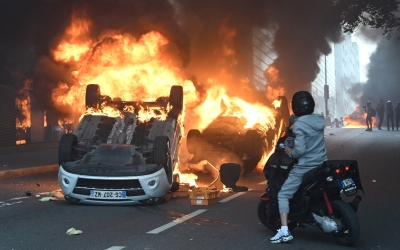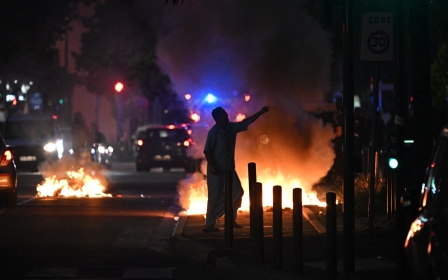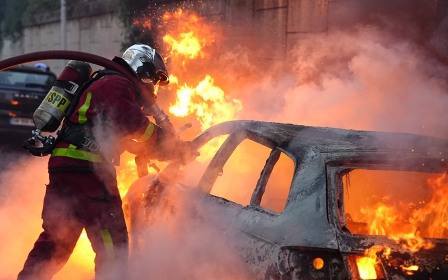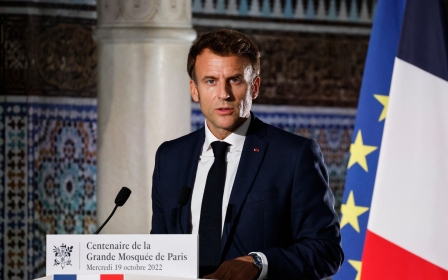Why are people protesting in France?
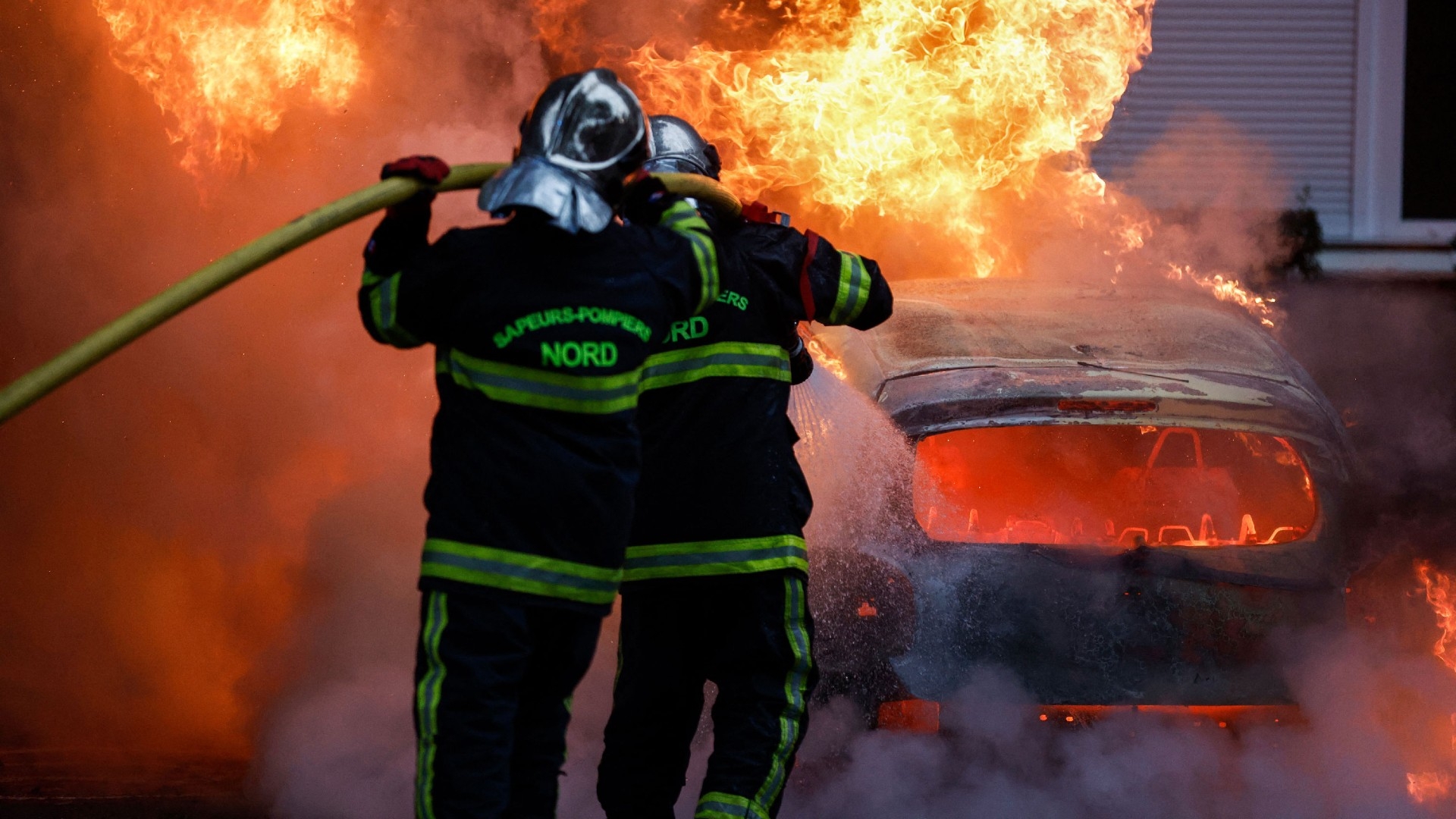
The riots convulsing France entered their third day on Friday, with more than 667 arrests made overnight, according to Interior Minister Gerald Darmanin.
In a tweet, Darmanin said police had faced “rare” violence in confrontations with protesters.
The unrest is in response to the killing of a 17-year-old boy by a police officer in Nanterre, a suburb west of Paris, on Tuesday.
President Emmanuel Macron held an emergency security meeting following the riots and urged for a return to order, while French footballer Kylian Mbappe and actor Omar Sy have condemned police brutality.
The outbreak of violence is some of the worst since protests in 2005 that resulted in three weeks of riots and a state of emergency in the suburbs of Paris and other cities following the death of two teenagers who were electrocuted as they tried to flee from the police.
New MEE newsletter: Jerusalem Dispatch
Sign up to get the latest insights and analysis on Israel-Palestine, alongside Turkey Unpacked and other MEE newsletters
What do we know so far?
On Tuesday morning, the youth, named as Nahel M, was driving in the Paris suburb of Nanterre, when police pulled him over for road misconduct.
Following a short conversation, captured by a bystander on their mobile phone, a police officer drew his gun and shot Nahel at point-blank range after he re-started his engine. The car then drove a few metres before crashing into a post.
The prosecutor at Nanterre said Nahel, who was of Algerian and Moroccan descent, was killed by a single shot that went through his left arm and chest.
Nahel was driving without a licence and the prosecutor said he was driving in a bus lane when officers tried to stop him.
He died at the scene and the officer involved is being held in custody on suspicion of voluntary homicide, the prosecutors said.
Why did the protests start?
Initially, anonymous French police sources claimed the driver had rammed into the two police officers who stopped him, however, the video footage showed that was not the case.
The video showed that the two police officers were not in any danger as the car was driving away.
The differing accounts led to widespread anger and fed into the commonly-held belief that were it not for the video footage, the initial police account of events would have been believed.
Who was Nahel M?
Nahel was an only child brought up by his mother, Mounia. He worked as a pizza delivery boy and played in the local rugby league.
He was enrolled at a college not far from where he lived, to train as an electrician.
Nahel did not have a criminal record with the police.
Over the last three years, Nahel spent some of his time playing for the Pirates of Nanterre rugby club, which aims to rehabilitate kids struggling at school.
Decades of tensions with the police
In the aftermath of the incident, people took to the streets of Nanterre to protest, including Nahel’s mother who was tear-gassed by the police.
His mother appeared in a video on Instagram alongside an anti-police brutality activist, saying: "I have lost a child of 17 years old. They took my baby. He was still a child. He needs his mother.
"This morning, he said: 'Mum, I love you'. I said: 'Be careful'."
People took to the streets to protest, setting cars on fire and throwing projectiles at the police.
Public buildings, including schools, town halls and the headquarters of the Paris 2024 Olympics in Seine-Saint-Denis were also set on fire.
Decades of distrust and animosity towards the police force, widely regarded by French citizens of immigrant backgrounds as institutionally racist and hostile towards them, have once again spilt over into mass protests.
So far 40,000 police officers have been deployed to tackle unrest nationwide - including 5,000 in Paris.
What happened to the police officer?
The lawyer representing the policeman who shot Nahel said the officer has apologised to the family and is "devastated" by what has happened.
The policeman has been charged with voluntary homicide.
The top prosecutor in Nanterre, Pascal Prache, said yesterday that the officer had not met the “legal conditions for the use of the weapon".
A senior member of one of France's main police unions dismissed suggestions on Friday that the police were racist.
"You don't control people because of their skin colour. You proceed to control and arrest someone in consideration of the facts," Thierry Clair, the deputy secretary general of UNSAD-Police, told Newsday on BBC World Service radio.
"No, the French police are not racist. There can be some behaviour which is on the borderline and some officers have been sanctioned, sometimes sacked, for such acts, but it's something that is marginal, like it happens in any corporation or institution."
Middle East Eye delivers independent and unrivalled coverage and analysis of the Middle East, North Africa and beyond. To learn more about republishing this content and the associated fees, please fill out this form. More about MEE can be found here.


